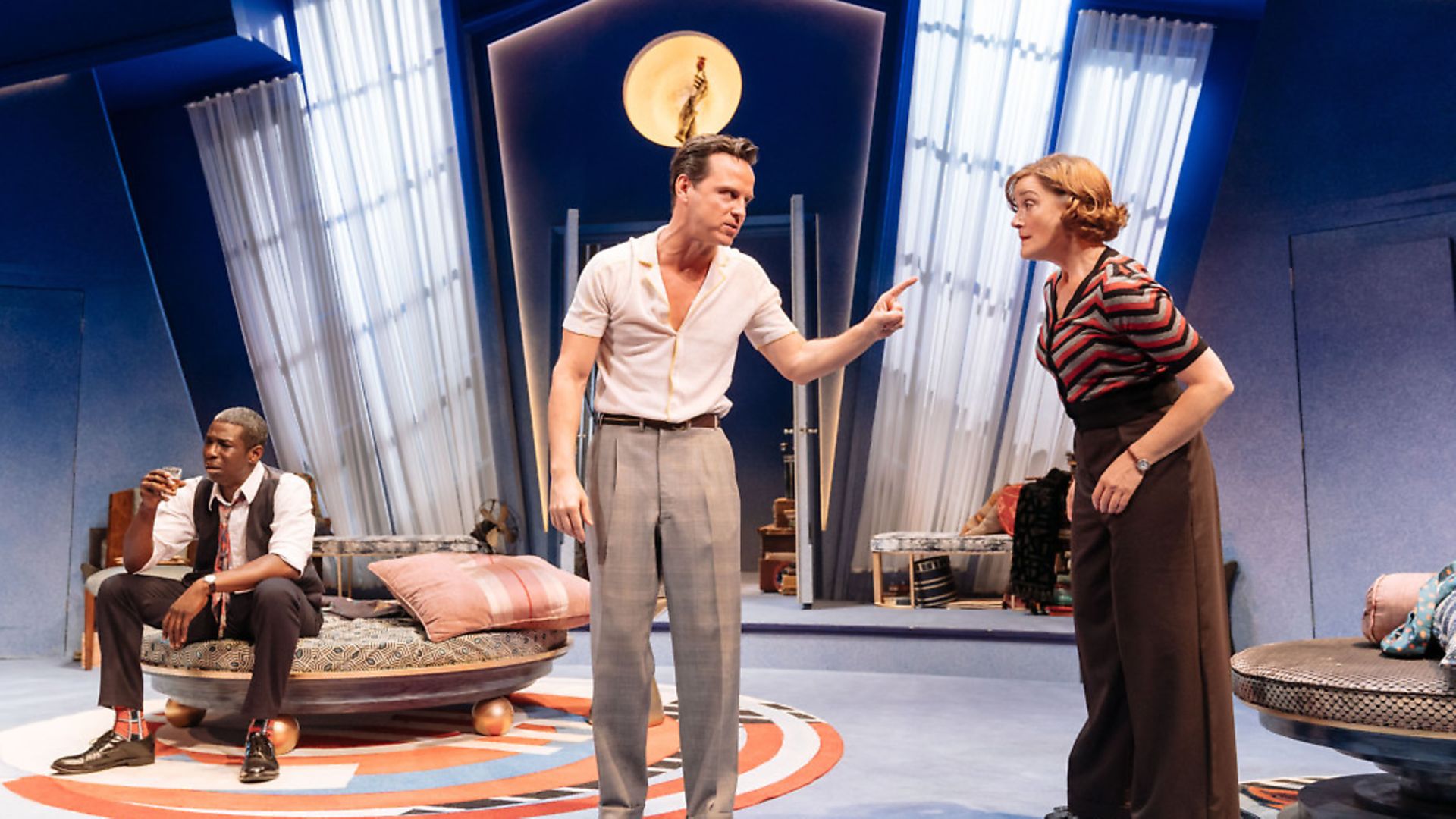
TIM WALKER gives his take on the comic play Present Laughter
The laws of the land and the social mores that prevailed during most of Noël Coward’s life meant that he had – in common with a great many other playwrights, such as Terence Rattigan – to be subtle when it came to addressing the subject of homosexuality in his work.
One can well understand why Matthew Warchus has decided it’s time to drag out of the closet Garry Essendine – the charming but vain actor that Coward modelled on himself – in his revival of Present Laughter. Warchus has simply turned the sexual adventurer Joanna in the original into a man named Joe – and cast the very masculine Enzo Cilenti in the role – but this bold surgical intervention has profound after-effects which I don’t think have been entirely thought through.
It means three of the major characters become, by necessity, bisexual, and, given that the play is set in the 1930s, it seems extraordinary that they are all quite so open, not to say casual, about their choice of bedfellows in front of their staff and strangers. I do think Essendine’s estranged wife Liz (Indira Varma) would at some point have at least acknowledged – or even appeared to notice – the gender of her former husband’s latest lover.
I don’t say what Warchus has done isn’t in principle a good idea – and I’ve no doubt that Coward might well have approved – but you can’t realign the gender of a central character in this way without a lot of rethinking and rewriting if you’re going to pull it off. It’s like producing a gay version of Romeo and Juliet simply by dint of re-naming the latter Julius and just leaving the Montagues and the Capulets to get over it.
Andrew Scott, in the role of Essendine, seems to grasp the problem and his response is to play him with such manic intensity that he hopes no one will notice the joins. I’ve seldom if ever seen the part played so energetically – Alex Jennings seemed in contrast almost lugubrious in the National’s 2007 production – and it makes for a show that is amusing to watch, if not terribly deep. Certainly the central character’s loneliness – and sense of the pointlessness of his life – is all but glossed over.
The supporting cast plays it for laughs, too, with Luke Thallon hamming it up outrageously as a talentless playwright from Uckfield with a crush on Essendine, and Sophie Thompson turns his secretary, Monica, into a character who appears to have stepped straight out of Acorn Antiques.
Warchus is a dab hand of course at comedies such as Boeing-Boeing and Groundhog Day and he would appear to be inviting the audience to focus not merely on Essendine’s sexuality but also his talent to amuse. Rob Howell’s set looks like an enormous blue bow tie and there are multiple doors so that characters can be bundled on and off stage at expedient moments like in all the best Whitehall farces. That it all ends with a burst of Freddie Mercury comes as no great surprise in all the circumstances.









